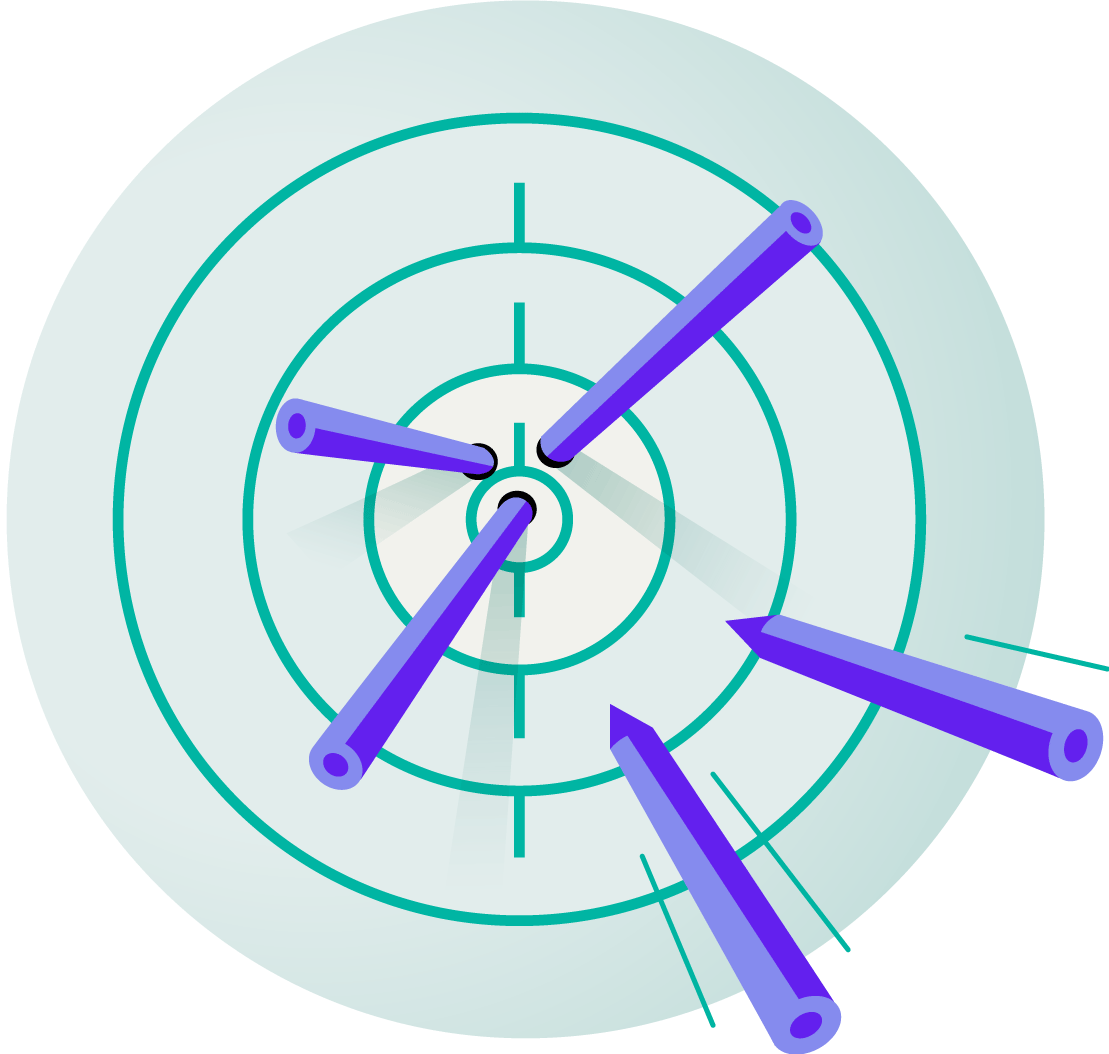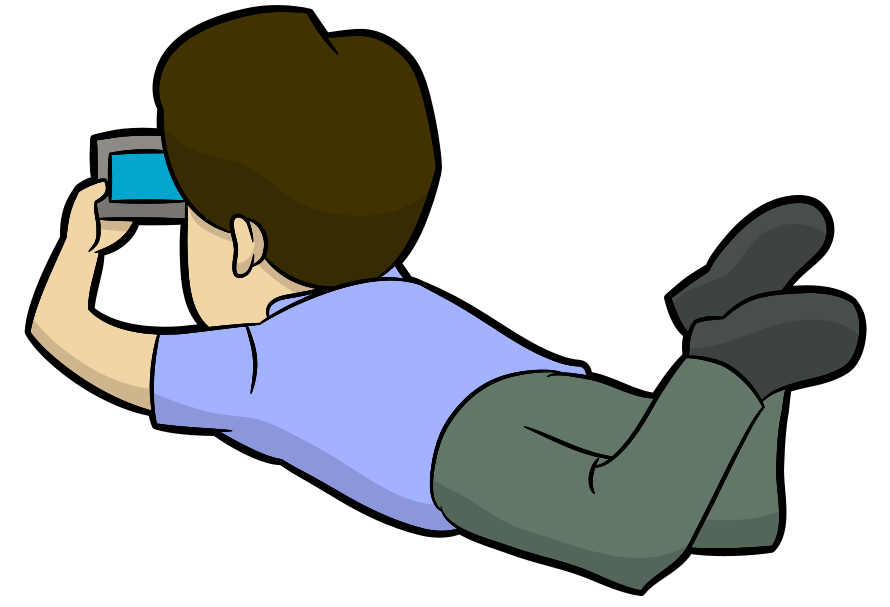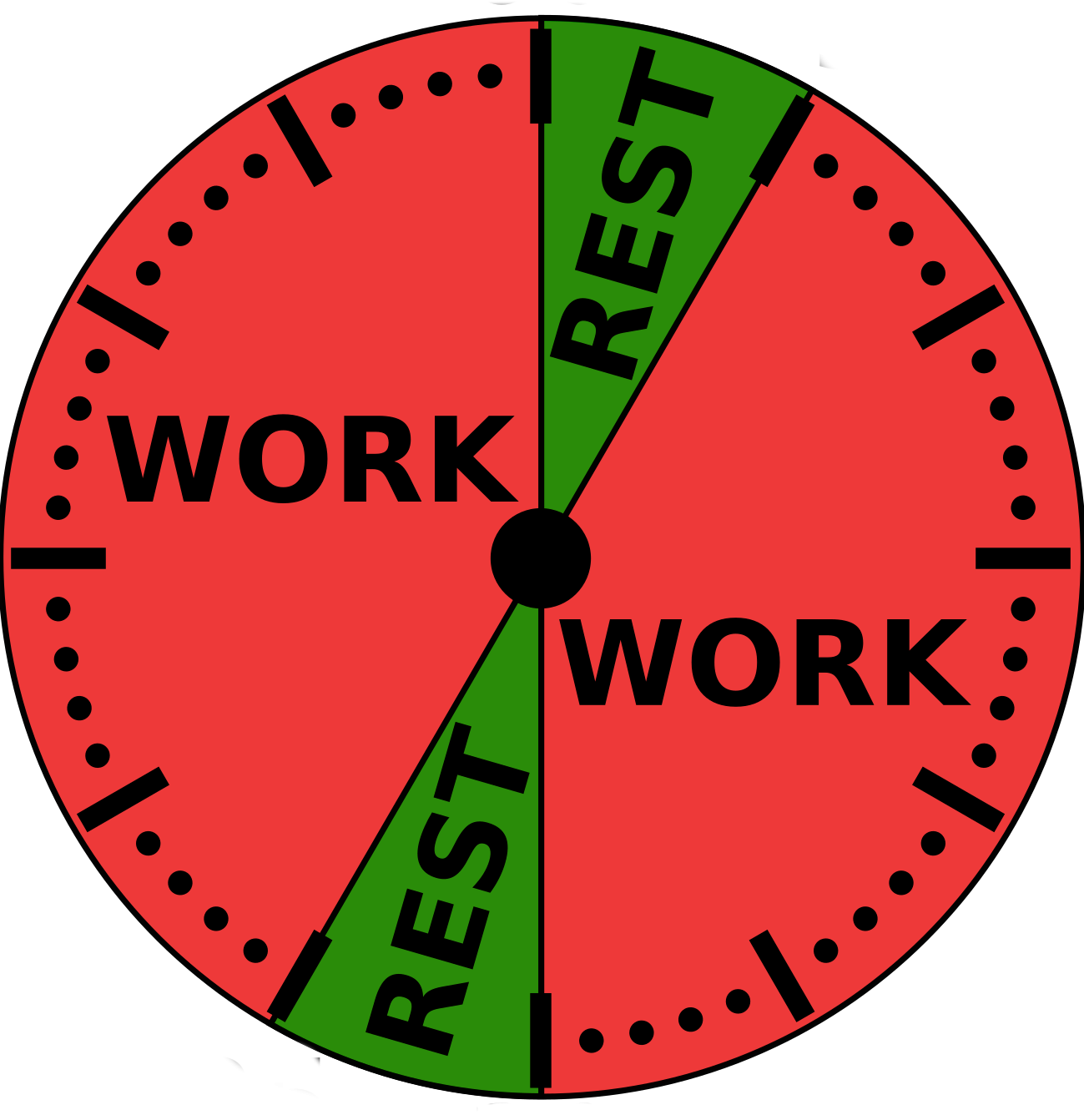
Our ability to focus is a precious resource. And in this distracted world, it’s becoming increasingly rare. There are too many things pulling at our attention: too many articles to read, too many talks and seminars, too many topics to think about… But as scientists, we need to concentrate deeply to advance our research — and to write up our findings clearly and effectively. So what can you do when your mind refuses to settle in and focus on the work at hand? Below you will find a tried and proven *minimal* approach how you can gain focus — and keep it throughout the day.
Yesterday was not a productive day for me. In the morning I sat down at my desk, and instead of writing an article I started to reply to emails, look up random things on the internet, then cleaned something in the kitchen, chatted with some friends on social media, ate a snack, discovered some new emails and got new ideas that needed to be checked online…
I was going in circles like this almost the whole day. Many times I opened the empty document intended for my article… but could not force myself to actually write anything. I did not have a clear picture of what exactly I was going to write, I did not know how to start — and I could not focus and cut through the brain fog.
I was surprised by this state — I haven’t had a bad day like this in ages. After lunch I sat down to meditate, to clear my head and get it under my control. As I closed my eyes and tried to concentrate on my breath, a thousand pictures and words were jumping on me from all sides.
And I understood what was the problem: the day before I spent the whole evening on the couch, “binge consuming” news & social media. Then, as I woke up in the morning, I automatically grabbed my phone and before I knew it, it was an hour later. And all these images, words, and emotions got stuck in my head, spinning in the background, and luring me from my demanding work into shiny worlds of distraction.
It is hard to focus when you start your day with distraction. It clutters your mind with exciting, beautiful, or troublesome images that are optimized for not letting you go.

This is usually not a problem for easy tasks (which don’t require your full concentration) or exciting tasks (which engage your full attention easily). During my PhD, for example, I could format my manuscript according to journal guidelines or program and run simulations even when I was spending my mornings (and lunch breaks) on news & social media sites.
However, (scientific) writing is different. It requires your full attention, as you are juggling your ideas, searching for the right words, and trying to guess whether your readers will understand what you mean. (Not to mention the troubles when you try to improve your text as you write it.)
How to gain focus for writing
If you find it hard to focus on your thesis or manuscript, try a little experiment during the next days:
- Reserve your mornings for writing. If you can’t reserve the whole morning, an hour or two will do as well. Even when you consider yourself a “night owl”, I suggest you give this a try: in the morning, our head is fresh and the potential to focus the highest. Unless… and here we come to the second point:
- Don’t go to online distractions before your morning writing session is completed. Don’t check any news or social media sites in the morning. No blogs, no articles, no insta chat with friends. Ideally, also don’t check your email. If needed, just glance quickly over your inbox to see whether there are any emergencies, but don’t engage with the messages if it’s not necessary. Resisting the temptation for update and distraction in the morning will be easier if you:
- Refrain from computer and phone during the last hour or two before you go to bed. Instead, you can read a book, listen to a podcast, talk to your partner, play a game with your flatmates, do some calming (yoga) exercises, write into your diaries, etc.
Avoiding online distractions late in the evening and in the morning helps to clear your head during the night and start the day off fresh, with a focused mind that is not running away from difficult tasks. Moreover, refraining from the blue screen light in the evening makes you sleep tight, so that you wake up well-rested and ready to tackle the challenging tasks — like writing your thesis 🙂
I followed this plan yesterday evening and this morning. And the difference in my concentration is enormous: there are no impulsive ideas, no urges to go do something else… I am calmly sitting at my desk and writing this article.
Block online distractions with an app
 When you try to leave your phone alone, you might realize that it is easier said than done. Indeed, resisting the temptation of your phone — and the worlds it contains — can seem to be truly impossible. There have surely been times when it seemed impossible to me…
When you try to leave your phone alone, you might realize that it is easier said than done. Indeed, resisting the temptation of your phone — and the worlds it contains — can seem to be truly impossible. There have surely been times when it seemed impossible to me…
Fortunately, there are apps out there that can support our limited willpower and help us stay away from online distractions. These apps let you specify the websites you want to block and when you want to block them.
For my laptop, I am currently using Leechblock that is available for Mozilla Firefox, Google Chrome, and other Chromium-based browsers such as Brave, Opera, and Vivaldi. It allows me to block selected websites during certain hours (for example, in the mornings when I want to focus on my important work) but there is also the possibility to set a time limit (like 10 minutes) for the selected websites and the app will block them for the rest of the day after I have spent the defined time on them. I also love the additional feature of preventing the access to the settings during active times when I’m blocking some websites. It’s great to avoid cheating, but it can also lead to difficult situations when you do need to access some of the blocked sites. My favorite workaround: keep 5 minutes of unblocked time every hour (XX:00-XX:05), to keep the possibility to change the settings if the situation requires it.
StayFocusd is a similar app for Chrome that has the additional (optional) feature of presenting you with a challenge (re-typing some text about procrastination :D) before you are allowed to change your settings.
If you work on Mac, you could try one of the popular distraction-blocking apps SelfControl or Focus.
After the blocking app on my computer proved to be a great productivity tool, I knew I needed something similar also for my phone. However, I have not found an app (yet) that would allow to block individual websites. What is possible is to block individual apps. So I am now using AppBlock on my android phone, blocking my web browser and few other apps when I am supposed to focus and work hard, but don’t feel like it. It has the function of preventing me from changing the settings while the app-blocking is active — and I use this function a lot 😉
Another similar app is Offtime that is available for android as well as iphone.
Troubleshooting
 Now we have an effective strategy for getting focused — but what about those days that we violate it, and do get distracted in the morning? Are these days lost? Or can we still reclaim our focus? My favorite method in these cases, as briefly mentioned above, is meditation.
Now we have an effective strategy for getting focused — but what about those days that we violate it, and do get distracted in the morning? Are these days lost? Or can we still reclaim our focus? My favorite method in these cases, as briefly mentioned above, is meditation.
This is not a spiritual meditation — it’s one where you concentrate on your breath to calm down your mind. That’s all. And it works!
Here’s how it goes:
- Set a timer for 10 minutes so that you don’t need to worry about the time.
- Prepare a pen and paper so that you can take a brief note if something important pops into your mind that you don’t want to forget.
- Sit down in a comfortable position. Sitting cross-legged or in other position where your feet are close to your buttocks is best, as you effectively cut your height by half, which makes it easier for your heart to pump enough blood to your brain. This alone helps with concentration!
- Close your eyes and start noticing your breath. Feel how the body tension increases as you inhale, and decreases when you exhale. For a couple of breaths, focus on the exhalation and use it to consciously relax your body and mind (a bit 😉 ).
- Now move your attention to your nostrils. Feel the cool sensation at your nostrils as you inhale, and observe the difference in your sensation as you exhale.
- Keep your full attention at your nostrils, observing the sensations due to breathing.
- If you catch your mind wandering off, just gently move your attention back to your nostrils. Don’t engage or fight your thoughts. Just attend the nostrils and your breathing again.
- If it seems impossible to concentrate on your nostrils (which is normal at the beginning), count your breath (while you keep your attention on your nostrils). Count from one to ten, and when you get distracted, start again from one.
- Keep counting (or trying to count :)) your breath until the timer gets off, or stop counting and only focus on the breath if your mind allows it.
Don’t worry if your mind won’t calm down and keeps popping up distracting thoughts. You will feel a positive effect also from “just” trying… If you repeat this exercise regularly and make it a habit, it will become easier for your mind to concentrate.
Stay focused throughout the day
Alright, let’s say you have gained focus by consciously managing your online distractions with the help of blocking apps and meditation. That’s great — but how can you prevent your focus from draining as the day proceeds? This is not a trivial task…
 Our ability to concentrate is a limited resource: it gets depleted as we use it, and it needs time to get replenished again.
Our ability to concentrate is a limited resource: it gets depleted as we use it, and it needs time to get replenished again.
This resembles the workings of a muscle — and, indeed, this popular metaphor helps us find a way how we can keep our concentration throughout the day:
The key to sustained — and sustainable — productivity are power breaks.
Similarly to our muscle power, we can focus for much longer if we take regular short breaks. However, you’ll gain little from such breaks if you spend them in online distraction.
Instead, use your breaks to stand up from your desk and get your blood circulating: walk around, take some stairs, visit the toilet (not necessarily the nearest one 🙂 ), get out for a minute or look out of the windows, breathe deeply, and stretch a bit. This will refresh your mind and get you ready for the next round of work.
As I was writing up my thesis, working hard and focusing deeply, I developed a routine for my breaks: I would walk down the stairs, visit a toilet, exit the building through the back door, stretch outside, then walk around the house while breathing deeply, enter the house through the front door, and return to my office. All of this would take me around five minutes. I would sit down at my desk truly revitalized, ready to continue my work with full focus.
 Now, an important point about such short power breaks is their regularity: according to my experiments (with myself as well as the students in my courses 😉 ), alternating 25-minutes work sessions with 5-minutes breaks works very well for writing. However, some people prefer 50 minutes of work followed by a 10-minute break.
Now, an important point about such short power breaks is their regularity: according to my experiments (with myself as well as the students in my courses 😉 ), alternating 25-minutes work sessions with 5-minutes breaks works very well for writing. However, some people prefer 50 minutes of work followed by a 10-minute break.
If this timing sounds familiar to you: yes, this is the essence of the Pomodoro technique. After 1.5 — 2.5 hours (3–5 work sessions) it is usually good to take a longer break of at least 0.5–1 hour. That qualifies as a coffee or lunch break 🙂 .
To summarize, you can gain deep focus for writing by avoiding online distraction in the late evening as well as in the morning, where you schedule your writing and other important work. Block online distractions with apps and help establish your focus with meditation as needed. You can stay focused for the whole day if you take regular power breaks: work for 25 minutes and take a break for 5 minutes, as the Pomodoro technique is suggesting.
If you want to improve your focus for writing, try this method during the next couple of days and share your experience in the comments!